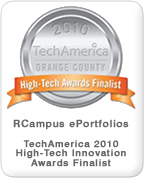Sarah Clement's ePortfolio
Educational Philosophy
Statement of Purpose
In the past five years that I have been teaching, I have had a philosophy that I have been trying to fulfill. This philosophy was created in undergraduate classes in which I was asked to look at my practicum and come up with a plan in which I would work towards in the first five years of teaching. My plan involved four components; teachers, students, parents, and community. I wanted to involve these components in the decisions that I made in my classroom. In most cases these components would be automatically considered in the educational decisions that teachers make, but as an undergraduate I had to define these parameters.
Now that I am in my sixth year teaching, I want to revisit my original philosophy. I have looked back at my portfolio several times over the past five years and feel that it is time to totally revise this philosophy and how the new curriculum and educational legislature has affected my philosophy. With the No Child Left Behind legislature, most teachers, including me have had to look at how we present and instruct students. In my experience with No Child Left Behind, I have had to resort back to conventional teaching methods, mostly lecturing, in order to fulfill the federal and state requirements. In the past five years, I have also had to take another Praxis test in order to become "highly qualified" to teach a subject that I had previously taught without this test. I felt that this was a good part about the NCLB policies.
In returning to school, I wanted to focus on how to integrate the technological strategies and the federal policies in my classroom. I am thankful that I teach in a county that addresses the increased participation of integrating technology in the classroom. In learning these new technological strategies, I have become more aware of what my students are capable of and what they still need help in. This experience has helped in my planning of lessons and in my teaching.
I still feel that the components that I originally wrote about in undergraduate are still important, but I now look at the styles of teaching and methods of delivering the information to the students as part of my philosophy. In my studies I have found that students are very unique in how they understand certain subjects and how they react to certain methods of instruction. I have been mostly a lecturer in my class for the past five years; something I hope to have the courage to change. This type of teaching has been effective in some of my classes and totally ineffective in others. A mixture of collaborative teaching and lecture has been more accepted by the class of students that I have taught. In my reading this summer, I have found that students will remember more if it is presented in a memorable way. In other words, students find meaning in their education when the teacher finds more meaningful ways to present the information. Some of the meaningful lessons that I have been experimenting with in my classroom this year are not taking tests and integrating more technology in my classroom.
My classroom, this year, has not taken a paper and pencil test so far. I have been creating performance-based assessments on the units that I have taught in the classroom. The students had two major assessments for the first grading period and they are working on a research paper this grading period as their assessment. I have found that the students are taking more responsibility for the information that they are given in class. This type of assessing did come with criticism. Most of the parents of my students are doing more complaining about the assessments than the students. I feel that this is just because these students have not been asked to create and analyze what they are learning in class. I am having fun learning how to deal with the balance between the students and the parents in the classroom.
n16
